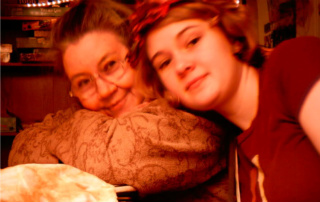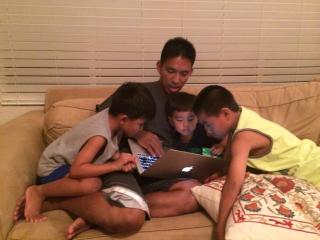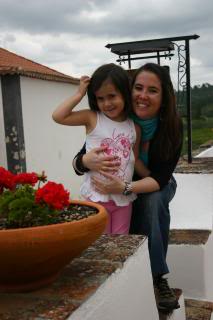
Smell your child's hair. They say dogs can smell fear, but moms can smell love, or something, when they smell the top of a young child's head. Something biochemical happens, and something intellectual can happen.
Smell your Child's Head













Baby powder gave me good memories another day.



Baby powder gave me good memories another day.
| The time will come in your unschooling when you will forget to use checklists, but it won't matter. The child's internal grid will already have given them the need to know what things feel, smell and taste, and what they used to be or will be, and whether it's different in other places. Connections will continue to be made throughout their lives. The universe inside will grow larger and the universe outside will become clearer with every new experience. |  |



Unschooling allows free use of any and all bits of information, not just school's small set. A grid based first on cartoon characters or the history of ice skating can be expanded just as well as one built on a second-grade version of the discovery of North America and the made-up characters in some beginning-reader series. If the goal is to know everything, and if each person's internal "universe" is unique, then the order in which the information is acquired isn't as important as the ease and joy with which it is absorbed.
The time will come in your unschooling when you will forget to use checklists, but it won't matter. The child's internal grid will already have given them the need to know what things feel, smell and taste, and what they used to be or will be, and whether it's different in other places. Connections will continue to be made throughout their lives. The universe inside will grow larger and the universe outside will become clearer with every new experience.
"Eating decisions"?
Choices. If ALL of that is changed to a model in which there is food, and people make choices—lots of small choices, not big "decisions"—a hundred hard problems disappear.
In one small moment, if a child can pick up a food or not; smell it or not; taste it or not; keep that bite and chew and swallow, or spit it out; take another bite or not; dip it in something or not; put another food with it or not—EVERYTHING changes.